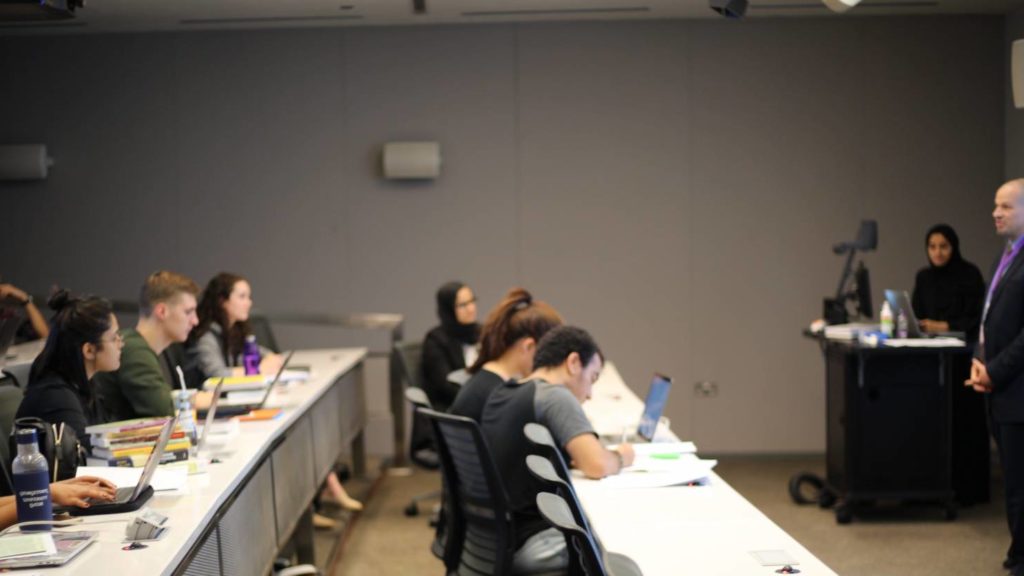Northwestern and Georgetown Offer Joint Course on Qatar in the Contemporary Muslim World

Georgetown University in Qatar (GU-Q) has joined with Northwestern University in Qatar (NU-Q) to collaboratively offer the Doha Seminar – a signature course that NU-Q has offered since 2013. This is the first time that the two universities will teach the course jointly and thus serves as a model for future collaboration by the partner universities at Education City and contributes to the fulfillment of Qatar Foundation’s multiversity vision.
This year’s Doha Seminar, “Behind the Headlines: Context and Meaning of Qatar on the World Stage, Qatar in the Contemporary Muslim World,” examines the process of nation-building and identity-making within Qatar and the country’s reception on the world stage.
This is the first time that a GU-Q faculty member has co-organized and co-taught the course which has been taught for the past several years by NU-Q Associate Professor Zachary Wright. As in past years, special guests from universities and leading institutions in Doha will serve as guest lecturers.
“NU-Q is delighted that GU-Q is joining us in offering this course to students in Education City. Our hope is that we will expand this seminar to include additional partner universities,” said Everette E. Dennis, dean and CEO of NU-Q. “The Doha Seminar is fast becoming an institution in Education City and we look forward to future collaborations for this and other courses with our partner universities.”
Dean of GU-Q, Dr. Ahmad Dallal, who also served as a guest lecturer in the seminar, commented: “We strongly encourage our students to take advantage of the unique possibilities that Education City has to offer, and this collaboration is another way of concretely demonstrating to everyone that we are a joint community of scholars and researchers working together for the benefit of the wider community.”
Associate Professor of Theology, Dr. Sohaira Siddiqui, who is spearheading the initiative at GU-Q explained, “By working together institutionally and leveraging the tremendous expertise that is available in Education City, our students benefit from multidisciplinary perspectives on the development and history of Qatar. The focus on various methodologies allows us to deal with specific issues around education, religion, and gender, in a way that really challenges our students, and pushes them to question assumptions and develop strong critical thinking skills.”
Wright noted that the course format challenges students to “take on complex thematic questions concerning nationalism, gender, and religious orthodoxy, among others, at a level normally explored in graduate-level seminars.”
Previous guest lecturers at the Doha Seminar at NU-Q have included experts from GU-Q, and NU-Q – including the deans – HBKU’s College of Islamic Studies, UCL Qatar, and others. Twenty-two students from NU-Q and cross-registered students from GU-Q are enrolled this semester.
“What we have been doing with this seminar is building our students’ theoretical and practical toolkits to conduct their groundbreaking research on regional developments as they affect Qatar,” Wright said. “It is an exciting learning process for my colleague from GU-Q to join me in offering the Doha Seminar to GU-Q students, and stands as a testament to the potential opportunities of intercampus collaboration and community networking that can take place in Education City.”